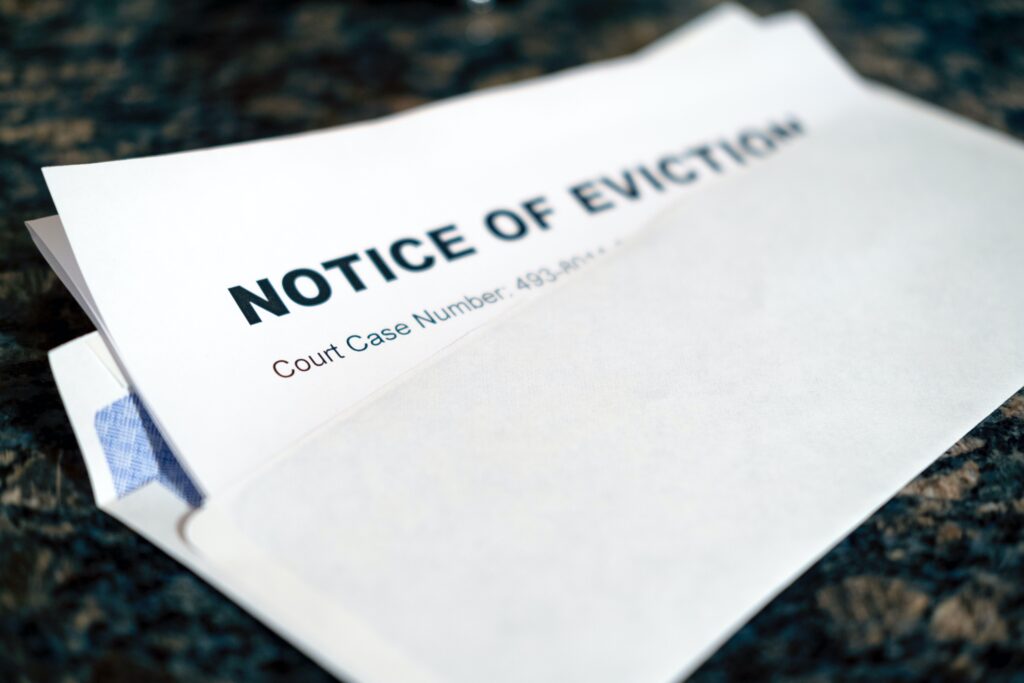If you’re struggling with debts and feel like you could lose your home, Property Rescue may be able to help.
Repossession of a home when facing financial difficulties is a stressful time for anybody. It adds further worry and can certainly cause sleepless nights for not just yourself, but your family too.
The financial impact is significant and can make gaining credit elsewhere tricky. Typically, lenders will be asked to consider alternatives, with the Financial Services Authority, who regulate them encouraging them to do so. However, repossessions can happen, and if that’s happening to you, then ultimately you need to deal with it in the best way possible.
What Happens When My Home Is Repossessed?
Of course, a long way to understanding how to deal with it is recognising the repossession process. This follows the same sort of process across the board, no matter who your lender, and it will generally be undertaken in the following way:
Your lender will contact you in regards to mortgage arrears
You will of course already know that your mortgage is in arrears, and the first step will involve the lender contacting you to inform you that you have missed a payment and the steps you can take to pay back the amount you are in arrears.
At this point you may be able to agree on a more affordable repayment plan for yourself, or be able to ask the lender to give you some breathing space to sell your home, in which case you could to sell your house fast and relieve the strain.
Your lender will begin court action
If a repayment plan isn’t possible, or you are unable to sell your home, then a lender may begin court action as what would usually be a last resort. At this stage they will supply you with a list of all the payments you have missed and the total outstanding amount you owe to them.
There are a number of rules a lender are obliged to follow before proceeding with any court action. These are:
- List of missed payments
- Outstanding mortgage debt
- Total amount of arrears and charges
Alongside of this, they need to provide information on:
- Payments over the past two years
- Interest and charges to be added
- Monthly instalments and total debt
If they fail to do so, then you should complain to the Financial Ombudsman Service.
You receive paperwork from the court
At this stage you’ll begin to receive documents from the court. You’ll receive a number of letters. These should be kept safely. The letters you’ll initially receive are:
- Claim and defence forms: This means that your lender has applied for a repossession order.
- Notice of possession hearing: There has been an arrangement for the hearing to attend.
You’ll need to attend the hearing
Following the arrangement of the possession hearing, you will be required to attend the meeting. It’s incredibly important to attend the meeting as ultimately if you don’t the court is more likely to order an outright possession and you could lose your home.
At the hearing, which typically lasts around 15 minutes, you’ll be required to negotiate with your lender and find a solution that suits both parties. A judge will then look at your case and make a decision.
The judge will make their decision
There are two types of decision a judge can make, which are:
- An outright order
- A suspended order
The first is the most serious of the two and will essentially mean you have to give your home up to the lender and you’ll be given a date in which you have to leave your home.
There is a possibility that this can be appealed and a number of charities are available to work alongside such as Shelter.
A suspended order will allow you to stay in your home, but under terms that have been set out by the court and you will be required to pay a defined amount alongside your regular mortgage repayments.
Bailiffs can be called to evict in some scenarios
Following the court decision, it is possible you may be evicted from your home by bailiffs. There are typically two instances in which this could happen. The first is if the date for your outright possession order has passed. Alternatively, if you were to break the agreement in your suspended order this can also allow your lender to apply for an eviction warrant.
Prior to the bailiffs coming in, a lender must send you a notice that they have applied for such a warrant and unless action is taken, the eviction process could occur within 14 days.
Your lender sells your home
Should you be evicted from your home by the lender, they will then look to sell your home, with the lender and any other creditors then receiving what they are owed. Any leftover funds will be sent to yourself.
What Should I Do If My Home Is Repossessed?
If this process has happened to you, there are a number of things in which you can do to try and prevent this or ensure the smoothest possible running through court. Among the steps you can take include:
- Contacting your lender: First things first, you should contact your lender as they will usually be keen to find a compromise and resolve any mortgage repayment issues you may have.
- Speak to an independent adviser: Citizen’s Advice and charities such as Shelter will be able to offer guidance and advice during the process that can prove invaluable, alongside any legal support.
- Find a buyer: If you are able to speak to your lender and they allow you to sell your home, you can either put it on the market or find a cash buyer. Here at Property Rescue we can purchase homes and complete the process within 48 hours.
- Find Financial Support: You may be able to work with another lender to find a manageable debt plan and transfer the debt you have with your mortgage lender onto them in order to stay in your home. However, this does require a lot of research to find the right lender and right payment terms for your needs.
Speak To Property Rescue
If you’re struggling with debts and feel like you could lose your home, Property Rescue may be able to help. We’ve worked with hundreds of people in the past to aid with their financial problems and have exchanged paperwork in as little as 48 hours.
Alongside that, we can also buy your home and rent it back to you, allowing you to stay in your home but eliminate any debts you may have with your mortgage lender. If you’d like to know more about this process, then don’t hesitate to get in touch with your expert team today.








